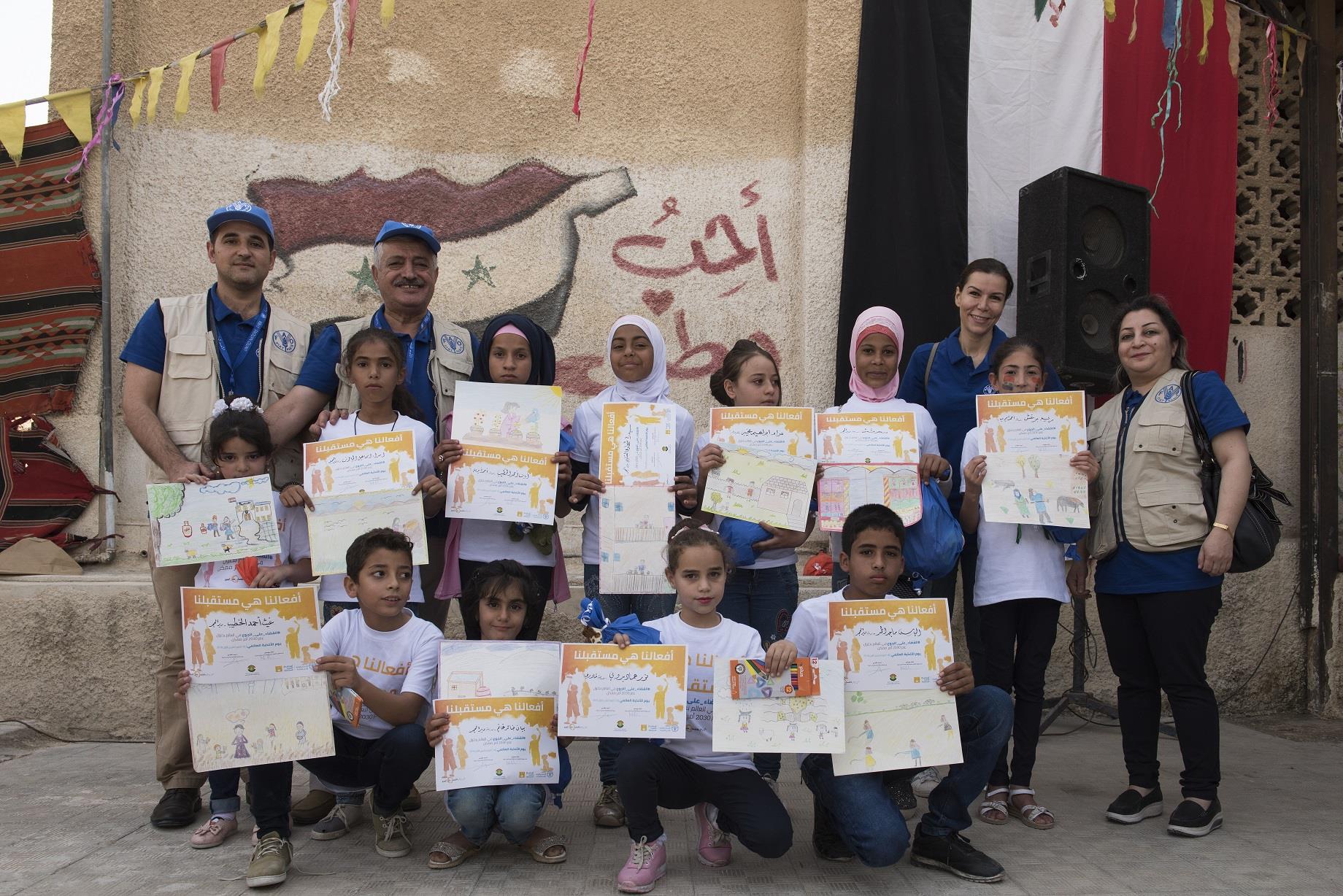Ninety schoolchildren express their ideas to achieve Zero Hunger with colors

©FAO/Rural Damascus/Hasan Belal
16 October 2018, Rural Damascus- To eliminate hunger in the world by 2030, we need to change our agricultural and environmental practices to ensure that everyone has access to enough nutritious food. FAO with the Ministry of Agriculture and Agrarian Reform (MAAR) and the Ministry of Education (MoE) have joined forces efforts to educate children on the value of the environment, on agricultural good practices and the importance of protecting natural resources, to guarantee sustainable food production in the future, and to defeat hunger.
“Our actions are Our Future”, the World Food Day 2018’s slogan, inspired 90 children from three schools in Rural Damascus to express their perspectives on achieving Zero Hunger by 2030 - the drawings revealed children’s thoughts on apple orchards, bread making, a healthy and clean environment, and encouragement to purchase local products.
The three participating schools – along with a further 12 schools in Rural Damascus and 20 schools in Aleppo - were part of FAO’s integrated school garden initiative, within the Education for All project supported by the Government of Japan. Over 4,000 children have been involved in activities learning about best agricultural practices, and the importance of healthy diets.
On 16 October 2018 at Al Ghezlaneyeh – Rural Damascus, FAO’s representative in Syria, Mike Robson, the Deputy Minister of Agriculture, Ahmed Qadeesh, and the director of education in Rural Damascus, Maher Faraj, awarded certificates for the 10 most distinguished drawings which will go forward to participate in the FAO’s global poster contest in Rome.
Moreover, the 90 drawings will be exhibited publicly in a small art exhibition in Damascus on 23 October 2018. FAO shares Syrian children’s messages and thoughts towards achieving Zero Hunger.
“We celebrate WFD this year with a challenge to achieve Zero Hunger by 2030 - this means 12 years from now,” stated Mike Robson in his opening speech. “For children, this can seem like a lifetime away, but it is really only just around the corner. Zero Hunger is achievable if we all put our hands together to improve the agricultural practices, value our food and use our resources wisely. And the children – the next generation - will be the key,” he added.
Seven years of war in Syria caused more than five million people to become food insecure, farmers depending on cultivation faced difficulties to access land and water resources, seeds and agricultural inputs to produce enough food in the country.
Nevertheless, FAO and its partners have put together strategies and programmes to improve food production in Syria by empowering local farmers with inputs and techniques, re-building the capacity of experts and conducting analyses and studies on the evolving agricultural situation, to help decision makers with accurate information for planning.
“The war in Syria severely damaged the agricultural infrastructure. However, it is clear that Syria has the potential to position itself once again as a leading country for food production in the region. We expect agriculture to become a major driver for economic recovery,” stated Mike Robson.
